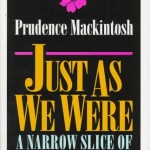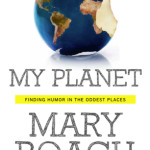Okay, so that’s a little harsh. But the point behind the hyperbole holds true. If you’re going to write a play, or any kind of story, be prepared to bleed (metaphorically speaking). It’s like pregnancy and childbirth: initial excitement, then lots of sitting around waiting for something to happen, then lots of agony, and at first you’re not actually certain that you like what came out.
And if you’re completely insane, you do it all over again.
A Little History
I know that I’ve been telling stories for almost my entire life, but I didn’t start writing them down until middle school. The first story I ever actually wrote was a “Sailor Moon” fanfiction (don’t you judge me–I was twelve!), but I moved on relatively quickly to writing stories that involved characters of my own creation.
The first time I ever submitted any of my writings for assessment was the summer before my freshman year of high school: I had to submit writing samples in order to be considered for the Challenge PreAP English program. Challenge PreAP ended up being pretty much the same as “regular” PreAP, except my class didn’t ever do group work, which was just fine with me. It was tough work all throughout high school, so most of my writing energy had to go toward essays on such scintillating topics as the structure of various really boring poetry.
As a Dramatic Media major in college, I got the chance to learn about all different forms of storytelling, including film, stage acting, directing, stage design, and writing for the stage and screen. It was during college that I was able to get back to telling my own stories, but this time the stories unfolded on stage and screen. It was also in college that I worked and sweated and went batshit-crazy over writing a full-length film script.
My Process
Short, yet generally pretty horrifying. Here’s the way my average “writing a play” attempt goes:
- Gain amorphous idea
- Present said idea to Best Friend, who has way more/better ideas than I do
- He then comes up with great plot points, and gets me excited about writing
- I write maybe 15 pages (of a 90-page script) before contracting the dreaded Writer’s Block
- I sit staring at the computer screen for several weeks before giving up
- Spiral downward into a bit of despair (“I’m a talentless HACK!!!”), eat a pint of dairy-free Chocolate Obsession ice cream, and mope for a week or two.
I can go through this cycle anywhere from one to five times, depending on how many “amorphous ideas” I’ve concocted. It’s not a pretty process.
So why do I do it, over and over again? I’m either crazy or a masochist…I can’t decide which yet.
What I (Try to) Write
Strong female characters, uber-evil bad guys. Plenty of snark and sarcasm. The plot almost always revolves around love of some kind–that could mean a friendship between two women, between a boy and girl, or romantic love. Almost all of my writing falls into one or more of the following categories:
- Fantasy
- Stories set in medieval times/alternate universes
- Comedy – chick flicks
- Stageplays
- Screenplays
- Machinima
The Problem With Writing
That completeness, that sense of “being done,” does not extend to the rest of my works–and I think many writers would agree that it does not extend to theirs, either.
The most frustrating aspect of writing is that you’re never actually done; there are always typos to fix, scenes to rework, feedback that prompts editing, etc. Or–as has been the case with my full-length script–you start by making one tiny change, and that change suddenly cascades into hundreds of changes and suddenly you’re essentially rewriting your entire script. No matter how great your script is, it will inevitably “just need something.”
So what’s a girl to do–stop telling stories? Besides, I enjoy the dairy-free ice cream.
Want to Write?
Awesome! Soon you’ll be totally insane, just like the rest of us! Here’s some resources that you may or may not find helpful on your journey.
Celtx – An open-source (that means free) scriptwriting program. There is an online community where you can post your scripts, people can comment on them, you can comment on others’ work, etc. It used to all be free, but I believe they’re starting to charge for certain features, so keep an eye out. This is the program I use.
FinalDraft – The granddaddy of all scriptwriting programs. Pretty much every author in the known world uses this program. It’s got all the features of Celtx plus a zillion others, but it’s pretty pricy. There is a free version, but it’s very limited on what it can do. If you’re not writing scripts for a living, this program is probably more than you’d need.
Writing Magic: Creating Stories That Fly (Gail Carson Levine) – A good book for writing exercises, although it focuses more on novels/stories than scripts.
Writing the Breakout Novel (Donald Maass) – I haven’t read this one yet, but I know someone who knows someone who is using it to write her book, and apparently it’s pretty helpful. There is a companion workbook available for purchase as well.
Final Thoughts
Well folks, that’s about it for today. Thanks for stepping into the ultra-insane portion of my storytelling world, and I hope I didn’t scare you off; writing scripts was one of the best parts of my college education, and I’m still working on overhauling my full-length screenplay. Maybe one day you’ll see it on the big screen. Happy writing!




![Now Even Books Have Trailers! [Bonus videos]](http://www.amypeveto.com/wp-content/plugins/wordpress-23-related-posts-plugin/static/thumbs/19.jpg)
